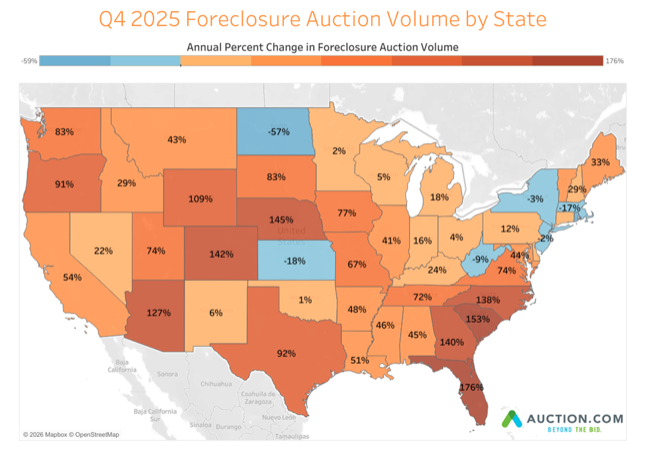 On May 18, 2016, the Consumer Financial Protection Bureau (“CFPB” or “Bureau”) posted its semiannual update regarding the Bureau’s rulemaking agenda. The Spring 2016 agenda contains an overview and timetable for the CFPB’s current initiatives. We have provided an overview of the most significant initiatives below.
On May 18, 2016, the Consumer Financial Protection Bureau (“CFPB” or “Bureau”) posted its semiannual update regarding the Bureau’s rulemaking agenda. The Spring 2016 agenda contains an overview and timetable for the CFPB’s current initiatives. We have provided an overview of the most significant initiatives below.
Arbitration Agreements
The Bureau issued a Notice of Proposed Rulemaking on May 5, 2016, covering the use of arbitration agreements containing class action waivers in consumer financial services contracts. The proposed rule would prohibit covered providers of certain consumer financial products and services from using class action waivers to prevent customers from filing or participating in class action litigation to resolve disputes. This follows a study on arbitration issued by the Bureau to Congress in March 2015, as was mandated under Dodd-Frank. The Bureau convened a Small Business Regulatory Enforcement Fairness Act (“SBREFA”) panel to consult with small business that may be affected by the policy proposals. Comments on the proposal are due on or before Monday, August 22, 2016. A final rule is not expected until summer of 2017.
Payday, Auto Title, and “Short-Term” Lending Products
The Bureau intends to release a Notice of Proposed Rulemaking to address consumer harms from payday loans, auto title loans, and other similar credit products. The rule is expected to introduce ability to repay and non-ability to repay options that will impose restrictions on loan structures and additional verification requirements. This rulemaking follows an April 2015 meeting between a SBREFA panel, Office of Management and Budget, the Small Business Administration’s Chief Counsel for Advocacy and small lenders that may be affected by the proposed new rules. The rulemaking adds to the Bureau’s research on these consumer products, online lenders’ debiting practices, and the Bureau’s ongoing analysis.
Prepaid Debit Cards and Accounts
In the summer of 2016, the CFPB plans to issue a final rule to create a comprehensive set of protections for prepaid financial products, which includes prepaid debit cards and other general-purpose “reloadable” accounts. The Bureau issued a proposed rule in November 2014 to create specific provisions to include prepaid accounts within the scope of the Electronic Fund Transfer Act and its implementing Regulation E as prepaid accounts. The Bureau further proposes to amend certain provisions of Regulation E and Regulation Z to regulate such accounts requiring that prepaid cards with overdraft service and credit features follow many of the rules governing credit cards.
Mortgage Rules
The Bureau expects to issue a final rule in the summer of 2016 to revise certain mortgage servicing rules contained in the Bureau’s December 2014 proposal. That plan addressed updated loss mitigation requirements and compliance with certain standards relating to when the borrower is a potential or confirmed successor in interest or when the borrower is in bankruptcy.
Know Before You Owe Amendments
The Bureau also expects to issue a Notice of Proposed Rulemaking this summer that will clarify and provide additional guidance regarding the federal mortgage disclosures that consumers receive when applying for and closing a mortgage loan under the Truth in Lending Act (“TILA”) and the Real Estate Settlement Procedures Act (“RESPA”).
Overdrafts on Checking Accounts
The CFPB issued a white paper in June 2013 and a report in July 2014 on checking overdraft services. The white paper compiled information from administrative data about overdraft practices of several of the larger banks. The paper touched on several key issues, including how consumers participate in overdraft coverage limits; insufficient funds fee structure, and involuntary account closures. The new information provides the Bureau with data on how overdraft coverage is offered and the amount of transactions that fall under overdraft protection. The Spring 2016 agenda states that the Bureau will continue to engage in pre-rule making activities and conduct additional research in preparation for pre-rule activities.
Debt Collection Practices
The Bureau issued an Advanced Notice of Proposed Rulemaking in November 2013 seeking comment and data regarding debt collection practices. The Bureau states that for the Spring 2016 agenda it is in the process of analyzing responses and is engaged in qualitative testing to determine “what information would be useful for consumers to have about debt collection and how that information should be provided to them.” While the Fair Debt Collection Practices Act (FDCPA) offer protections to consumers from unfair or deceptive collection practices, no federal agency had authority to regulate the industry before the CFPB was formed. The Bureau must conduct other pre-rule activities, including convening a SBREFA panel, before issuing a proposed rule. The agenda does not provide an estimate of when such pre-rule activities will occur.
The CFPB is continuing other efforts with regard to implementing consumer protections that were mandated under the Dodd-Frank Act. The Bureau has been gradually releasing rules and regulations for the mortgage, credit, and other financial markets. The protections are meant to safeguard consumers and provide more oversight to an industry that is still recovering from the economic crisis of 2008. The Bureau announced that other potential long-term initiatives include rulemakings that will address credit reporting and student loan servicing.
 Jenny Park, ESQ. , with Fortra Law, represents and advises financial institutions, investment funds, real estate investment trusts, brokers, loan servicers, and individual investors, in all aspects of general business and commercial matters. She has extensive experience in the workout, restructuring, and enforcement of commercial and real estate loans, including foreclosure actions and receiverships
Jenny Park, ESQ. , with Fortra Law, represents and advises financial institutions, investment funds, real estate investment trusts, brokers, loan servicers, and individual investors, in all aspects of general business and commercial matters. She has extensive experience in the workout, restructuring, and enforcement of commercial and real estate loans, including foreclosure actions and receiverships











Leave A Comment